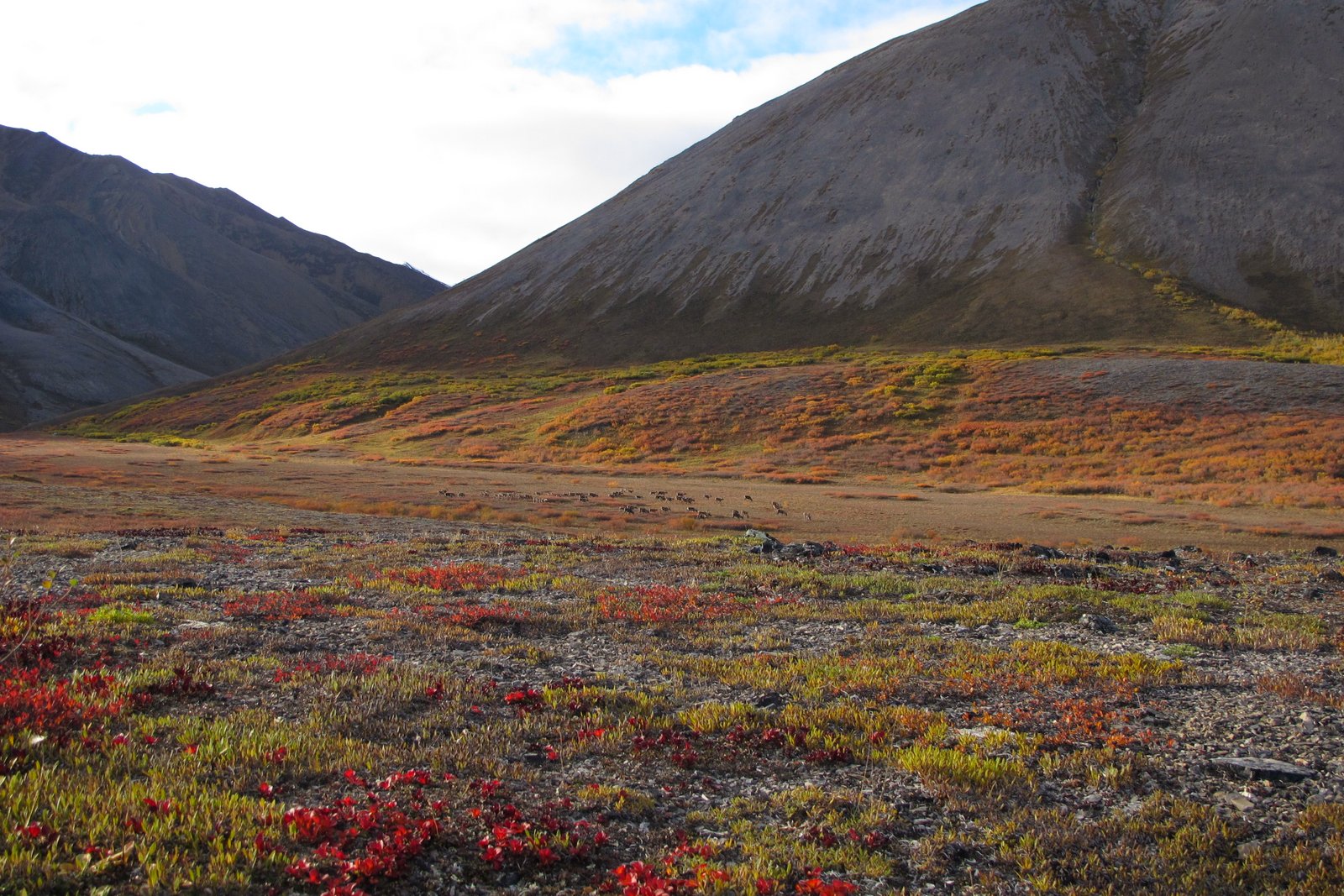A controversial road project in Alaska’s Arctic will get a new environmental review
A rewrite of the environmental assessment could mean the Ambler Road's approval is overturned.

The Biden administration plans a partial rewrite of the environmental studies that led to the Trump administration’s approval in 2020 of a controversial industrial road that would cut through the Brooks Range foothills in Arctic Alaska.
The Interior Department, in documents filed on Feb. 22 in U.S. District Court in Anchorage, revealed that plan and asked the judge to postpone any major decision in the two pending lawsuits challenging the planned 211-mile gravel road to the Ambler mining district in northwestern Alaska.
The rewrite could result in a reversal of federal approvals of the Ambler Access Project, Interior said in its motion.
“The Department will determine, based on the totality of the administrative record as supplemented by the additional analysis and consultation described below, whether to affirm, amend, or terminate the right-of-way permits,” the motion said.
A delay in court action is appropriate because the Alaska Native plaintiffs in one of the lawsuits have pointed out significant legal flaws in the environmental reviews, the Interior Department said in its motion.
Specifically, the Trump administration’s review failed to properly address the subsistence needs and rights of the Indigenous people living in the affected area, and it also failed to properly address cultural and traditional religious issues, Interior said.
The administration previously raised doubts about the Ambler road approvals.
Among the deficiencies in the Trump administration’s analysis, the department said, were the failure to sufficiently consider the road’s impacts on caribou forage, a lack of “meaningful discussion” of impacts to water, including groundwater and salmon habitat — a problem compounded by recent problems with poor salmon runs in the Yukon River system — and a failure to properly consult with tribes.
Tribal governments that are suing to overturn the road approval applauded the Biden administration’s decision to rewrite portions of the environmental studies and put a hold on the right-of-way.
The Ambler road “represents a fundamental threat to our people, our subsistence way of life and our cultural resources,” Brian Ridley, president of the Tanana Chiefs Conference, said in a statement.
“We have lived on these lands for thousands of years,” said Frank Thompson, first chief of the Evansville tribal government. “Our lives here are only possible because of the subsistence resources that also exist here.”
The Ambler industrial road, which would be built by the state, is considered necessary for any commercial development of copper and other minerals at mine sites being explored by Trilogy Metals Inc. and its Australian partner, South32. The companies have formed a partnership, Ambler Metals, that is pursuing several mine developments in the region.
The Trump administration, in its final days in January of 2021, signed a right-of-way agreement with the Alaska Industrial Development and Export Authority, the state agency seeking the build the project.
The road would cross through undeveloped and permafrost-rich land, including part of Gates of the Arctic National Preserve. The region is the habitat for one of North America’s biggest caribou herds. Opponents argue that the road would disrupt the entire ecosystem and the people who depend on that ecosystem.
Interior’s full motion seeking a delay in the court case was filed in the tribal governments’ lawsuit. A shortened version was filed in the second lawsuit, in which a coalition of environmental groups are the plaintiffs.
Alaska’s all-Republican Congressional delegation, which has pushed for the Ambler road, sharply criticized Interior’s decision to reevaluate portions of the environmental reviews.
“This filing is a continuation of the Biden administration’s self-destructive policies that target Alaska families and American workers while seriously undermining our national security,” Sen. Dan Sullivan said in a joint statement issued by the delegation. “As has been the case with many of this administration’s executive actions, the only winners are the far-left radical environmental groups that want to shut down all Alaska economic opportunities, and aggressive dictators like Russia’s Vladimir Putin and the Chinese Communist Party leader Xi Jinping, both of whom can hardly believe their luck that the leader of the free world—their biggest adversary—continues to unilaterally disarm America in some of our nation’s most important areas of strength: energy, natural resources and critical minerals.”
Despite the Biden administration’s misgivings about the project review, AIDEA is proceeding with its plans to build the road.
The AIDEA board on Jan. 27 approved a $15.4 million for field studies, data collection, permitting and other pre-construction work to be done this year. “The goal is to stay on schedule and on budget for a final investment decision in 2024,” Dana Pruhs, AIDEA’s board chairman, said in a statement.
AIDEA officials have characterized the Ambler road as the key to staggering minerals development in Arctic northwest Alaska.
“Access to the Ambler Mining District has the potential to create four or more Red Dog-level mines,” AIDEA’s executive director, Alan Weitzner, said in the statement. The Red Dog Mine, near Kotzebue, is one of the world’s largest zinc producers.